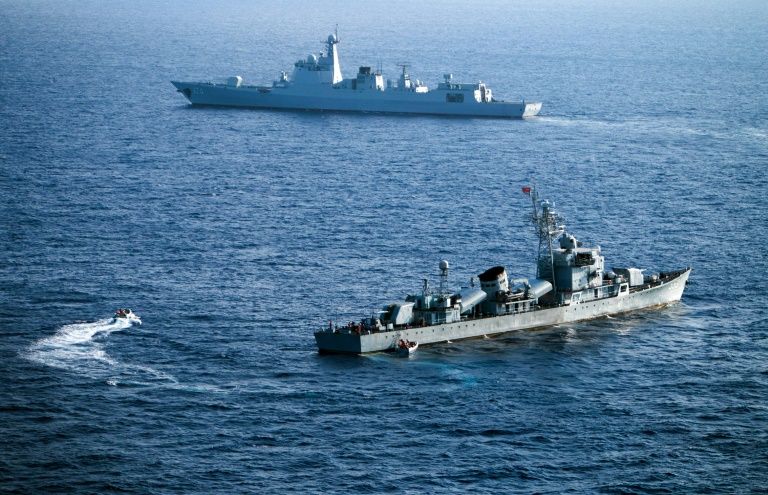China and the Philippines said they will “cautiously proceed” with discussions on joint oil and gas exploration in the South China Sea, further reversing years of tensions over their competing claims to the region.
The two states, who made the announcement on Wednesday, have long been embroiled in a bitter dispute over the waterway — with China claiming nearly the entire sea — but Philippine President Rodrigo Duterte has in recent years softened his predecessors’ policy of opposing Beijing’s claims.
The countries will “in a prudent and steady way advance cooperation on offshore oil and gas exploration”, Chinese foreign minister Wang Yi told reporters after meeting Philippine Foreign Secretary Alan Peter Cayetano.
“The South China Sea disputes will no longer be a source of negative energy blocking the development of bilateral ties,” he added.
The Philippines said earlier this month it was in talks with a Chinese state firm over joint exploration and extraction in the strategic and supposedly resource-rich sea.
Brunei, Malaysia, Taiwan and Vietnam also claim all or part of the sea, and proposed cooperation between Manila and Beijing has caused alarm among neighbouring Southeast Asian countries in the past.
Cayetano said at the press conference that China and the Philippines “are finding a common legal framework to conduct joint exploration and surveys”.
“Our relationship… is in a golden period, and with very positive momentum,” he said, adding that the countries “are now ready to face more challenges together”.
However no further details on the nature of the agreed cooperation were given.
Cayetano said last month that Manila would consult legal experts to make sure any accord would not infringe Philippine sovereign rights.
Duterte has described a proposed deal as akin to “co-ownership” of contested areas, saying this was preferable to the “massacre” of Filipino troops in a war with China.
Duterte’s willingness to cooperate with China marks a turnaround from the stance of predecessor Benigno Aquino who accused Beijing of encroaching, occupying, and building structures on reefs and rocks that Manila claims as part of its exclusive economic zone.
Aquino won an international arbitration tribunal ruling in 2016 invalidating Beijing’s claims, but Duterte set aside the ruling while courting investments and trade from the Philippines’ giant neighbor, the world’s second-largest economy.




